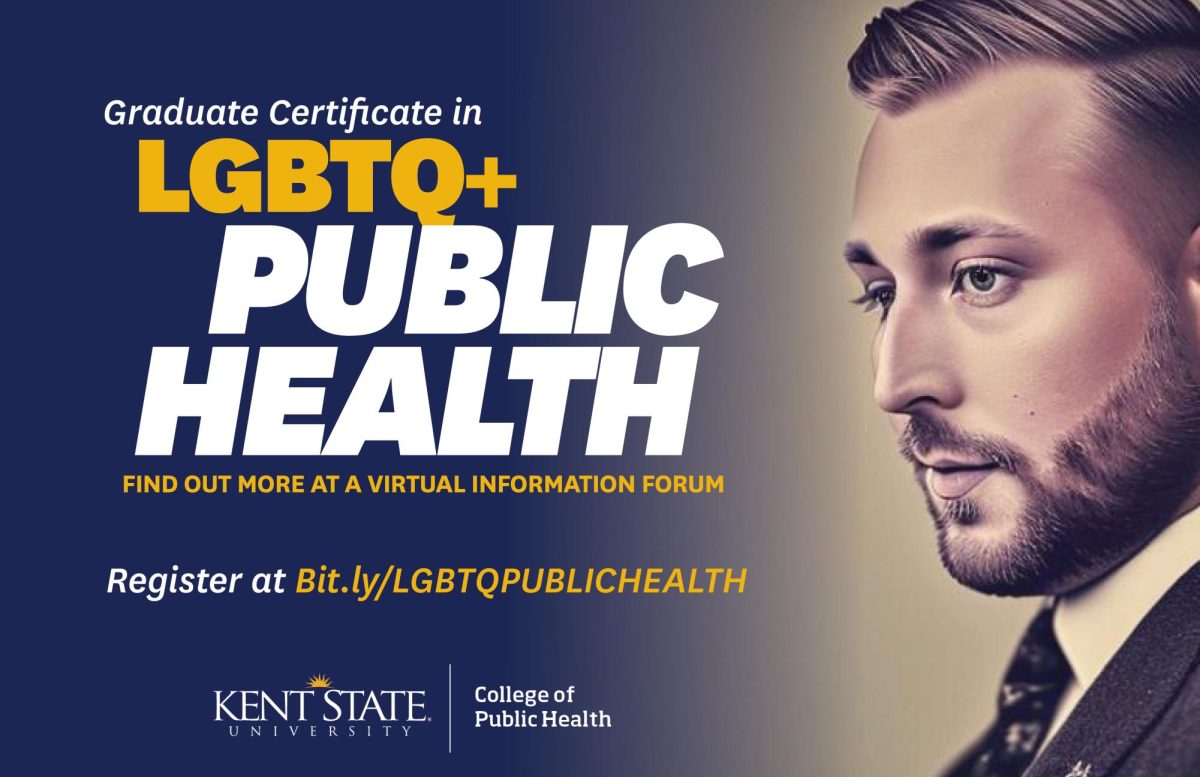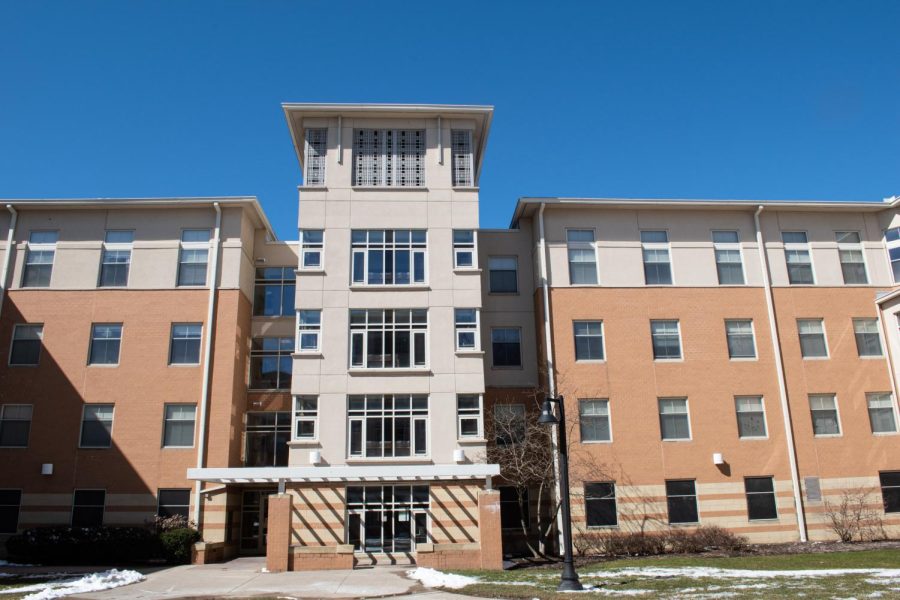The College of Public Health is offering a new LGBTQ+ Graduate Certificate to provide a comprehensive understanding of the unique health needs and disparities faced by the LGBTQ+ community.
To current graduate students, healthcare or public health professionals or anyone interested, the certificate program is an opportunity that offers a wealth of insights into this critical and often overlooked area.
The inspiration behind the program stems from the need for more comprehensive education surrounding LGBTQ+ health. Andrew M. Snyder, the director of program outreach, conducted a needs assessment within the LGBTQ+ community in the greater Akron area and used the responses when creating the program.
Tyler Stimpert, a student pursuing the LGBTQ+ certificate, noticed this significant lack of LGBTQ+ health-related education. He found the program particularly appealing due to its direct application to his field and its practical lenses focused on solutions to this disparity.
“I think my favorite part [of the course] is around the relevancy of LGBTQ issues right now,” he said. “Professors so far are really taking a solutions-based view.”
The curriculum covers a range of topics, from the lived experiences of queer individuals to evidence-based practice, with a strong emphasis on advocacy. According to Snyder, the graduate certificate addresses a significant gap in healthcare education by focusing on areas such as cultural sensitivity and the many facets of LGBTQ+ health.
In offering this program, new opportunities for better healthcare practices will be created as well as a more inclusive, respectful and equitable environment for LGBTQ+ individuals.
“It’s the impact,” Snyder said. “I feel so honored to be a part of helping to develop a workforce in public health that has specialized knowledge in LGBTQ health.”
The certificate includes two existing public health courses: “Social Determinants of Health Behaviors” and “Community Health Needs Assessment,” with a new course, “Emerging Issues in LGBTQ+ Public Health Practice,” being developed for the program. This class equips students with the skills to identify and address public health issues within the LGBTQ+ community, fostering actionable change.
“They learn how to encourage or empower people to take action,” he said.
What sets this certificate apart is its immediate relevance, according to Snyder. LGBTQ+ health is not just a theoretical concept; it is immediately impactful on the real world, with students gaining insight into policy issues and disparities affecting the community.
The program is of particular interest to healthcare professionals and policymakers, who can directly apply their knowledge to create a more inclusive healthcare system.
The classes for the program offer 30 seats and registrations have been completely filled out, considering students outside the certification can also take it as an elective, explained Snyder.
“We’re seeing a lot of LGBTQ community leadership apply to the program and take the coursework,” he said, “and a lot of them have shared with us that they’re using what they learn in the classroom out there on the front lines right now.’
This program is making a real-world impact and training a new generation of healthcare professionals and advocates. Kent State University is leading the way in promoting LGBTQ+ health awareness and inclusivity, setting an example for other institutions to follow.
“We’re making a difference, one student at a time,” Snyder said.
Sofia Giotti Teixeira is a reporter. Contact her at [email protected].





